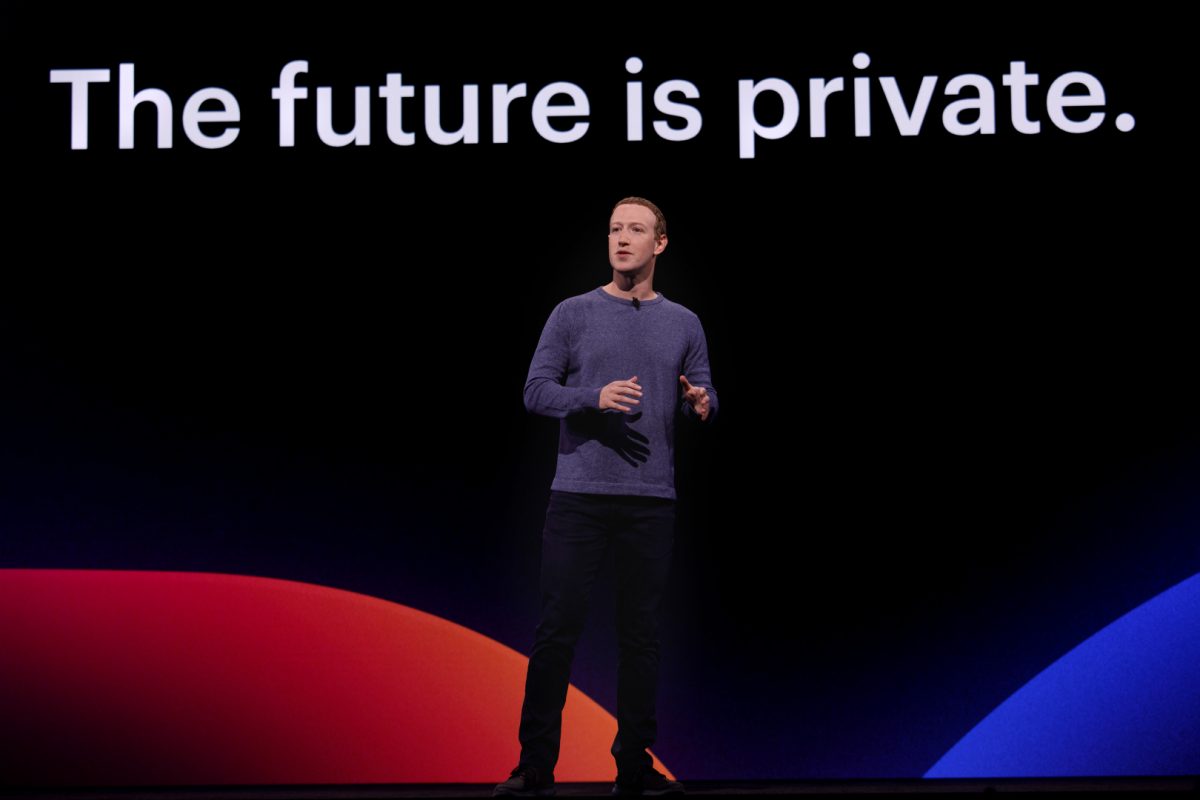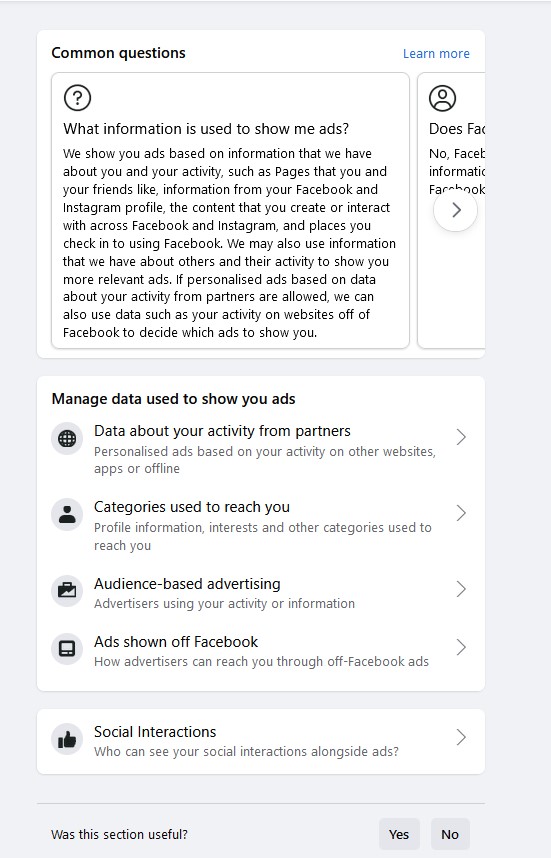The End of Facebook’s Dominance on Social Media? Who Will Seize The Crown, And What Does It Mean For Privacy?

Facebook has been part of our lives for so long it’s easy to forget that there were hugely popular online services and sites before it. Remember AOL, MySpace, CompuServe, or GeoCities? All of them now shadows of their former selves, if they exist at all. It is important to remember that Facebook, too, will likely fade away one day.
Indeed, there are multiple indications that the decline of its parent company Meta has already begun.
A clear signal that all was not well with the company was the $230 billion wipe-out in Meta’s value in February of this year after the company reported its first ever drop in daily user numbers. This wasn’t a market-wide fall: a couple of days before, Google’s parent company, Alphabet, reported a 36 per cent increase in its quarterly profits, and saw its share price jump 8 per cent as result.
And that’s not all. Meta had another dramatic crash in October this year, when another $80 billion were wiped from the company’s value. Overall, this made Meta the worst performer in the S&P 500 group of top companies this year: its shares have fallen 73% during that time. A few weeks later, 11,000 staff were laid off.
Meta Doesn’t Understand Its Own Data Governance
Much of the continuing decline in value is investors’ scepticism about Mark Zuckerberg’s big bet on the metaverse, discussed previously on PIA blog. But this is not just about poor financial performance. Recently, Facebook has been hit in multiple ways that expose deeper underlying vulnerabilities.

For example, on 17 November, the Irish Council for Civil Liberties (ICCL) sent an open letter to the European Commission about Meta’s internal data systems, and how the ICCL believes that Meta infringes on both the GDPR and the EU’s new Digital Markets Act. The ICCL has drawn on thousands of pages of documents released by Meta as a result of litigation in the US:
The documents describe data anarchy within the company, where people responsible for data systems are unaware of how other people in the company use their system. In some cases even the engineers using a system may not be able to understand what is happening because, according to a Meta engineer, ‘it is not possible for humans to understand.’
As a result, the ICCL claims “Meta’s data free-for-all makes compliance with the new EU Digital Markets Act impossible for the tech giant.” It calls on the European Commission to take “urgent action”, detailed in its letter.
Meta Taken to Court Over Data Collection
A few days later, the human rights campaigner Tanya O’Connell brought a case against Meta in the UK. She asked the court to enforce her GDPR “right to object” to the constant gathering of personal data that Facebook conducts as part of its advertising system. O’Connell says that Meta repeatedly refused to respect her right to object to being surveilled and profiled.
As the press statement underlines, “a win could set a precedent for millions of users of search engines or social media in the UK and EU who have been forced to accept invasive surveillance and profiling to use digital platforms.”
The day after O’Connell brought her case, another example of how Facebook has been quietly gathering highly personal data was revealed in the US. Tax filing sites there have been routinely sending users’ financial information to Facebook, including sensitive details of their income, filing status, refund amounts, and dependents’ college scholarship amounts.
The day after that, Meta announced that it had taken down fake Facebook and Instagram accounts linked to a pro-US influence operation. This follows a similar move to dismantle covert political influence operations from Russia and China in September. Both underlined the laxity of the checks and moderation that Meta applies.
Meta’s Competition Is Closing In Fast
A few days later, Meta was fined $276 million by Ireland’s Data Protection Commission (DPC) over a Facebook data leak involving more than 533 million users. A couple of months before, the DPC had hit Meta with a $400 million fine because of the way it handled teenagers’ data.
Paying hefty fines is painful, but hardly threatens the long-term existence of Meta. More problematic is the rise of a powerful competitor in the shape of the Chinese-owned TikTok. According to an article in Fast Company, TikTok’s owner, ByteDance, announced in September 2021 that its app had reached 1 billion monthly global users. The number today is likely to be considerably higher.
At the time of Meta’s huge drop in value in February this year, Mark Zuckerberg acknowledged facing tough competition from companies like TikTok.
Now that TikTok has built up a huge global audience, it is working to expand it and exploit it financially. Already, more people are getting their news from TikTok, while steadily fewer turn to Facebook for that purpose. In August this year, TikTok launched new advertising solutions offering better targeting. That’s concerning from a privacy viewpoint, because recent research confirms that TikTok uses invisible tracking pixels just as Facebook and Google do. Research carried out for Consumer Reports found:
The national Girl Scouts website has a TikTok pixel on every page, which will transmit details about children if they use the site. TikTok gets medical information from WebMD, where a pixel reported that we’d searched for “erectile dysfunction.” And RiteAid told TikTok when we added Plan B emergency contraceptives to our cart. Recovery Centers of America, which operates addiction treatment facilities, notifies TikTok when a visitor views its locations or reads about insurance coverage.
The End of Facebook Is Not Good News
This means that the shift of advertisers from Facebook to TikTok is unlikely to bring any benefits for the privacy of online users.
The same is true of any migration of advertising from Facebook to Amazon. The latter’s advertising activities grew 58% in 2021 to more than $31 billion in revenue, making it the third biggest online ad seller in the US after Google and Facebook.
It’s not just the size that is concerning with Amazon: aside from tracking which ads people are interested in as they move around its site, Amazon is uniquely well placed to see what products they actually buy – an even stronger indication of their personal interests and plans. It also aims to extend its ad network – and thus its tracking – to external sites.
As the wide range of problems faced by Meta show, the age of Facebook’s undisputed dominance in the social media space seems to be drawing to a close. Whether TikTok, Amazon or an unlikely competitor will win the contest to replace it as one of the top two online advertisers is not clear.
What is certain is that end users are unlikely to benefit. The underlying model for online advertising remains one built on constant surveillance and relentless exploitation of personal data. And until that changes, no demise of a social media company will be useful in any way.
Featured image by Facebook.
